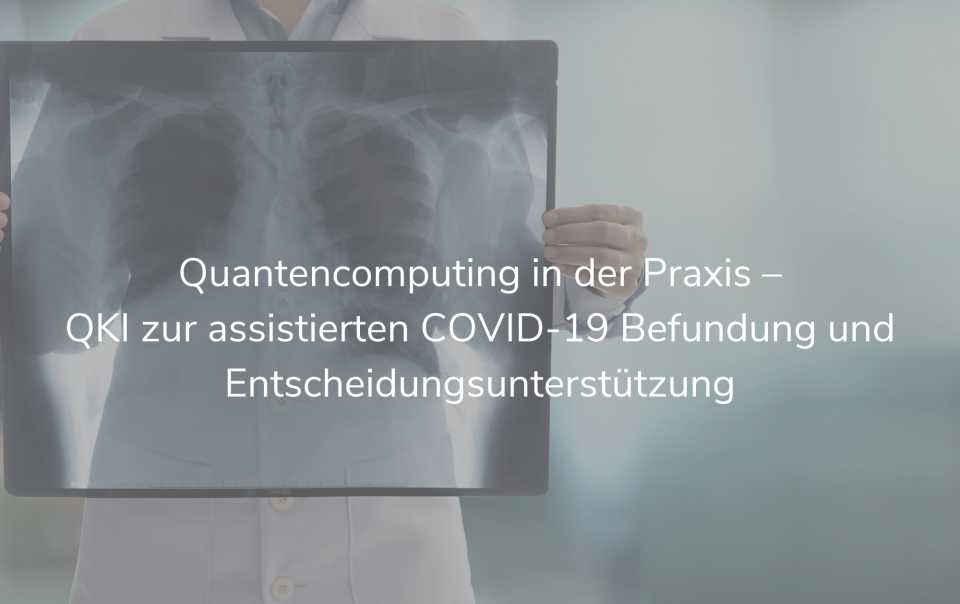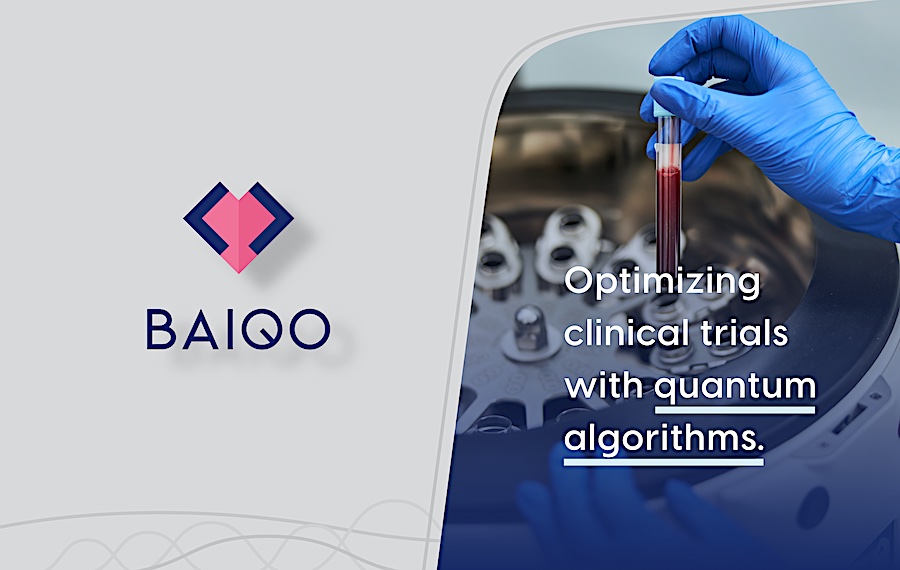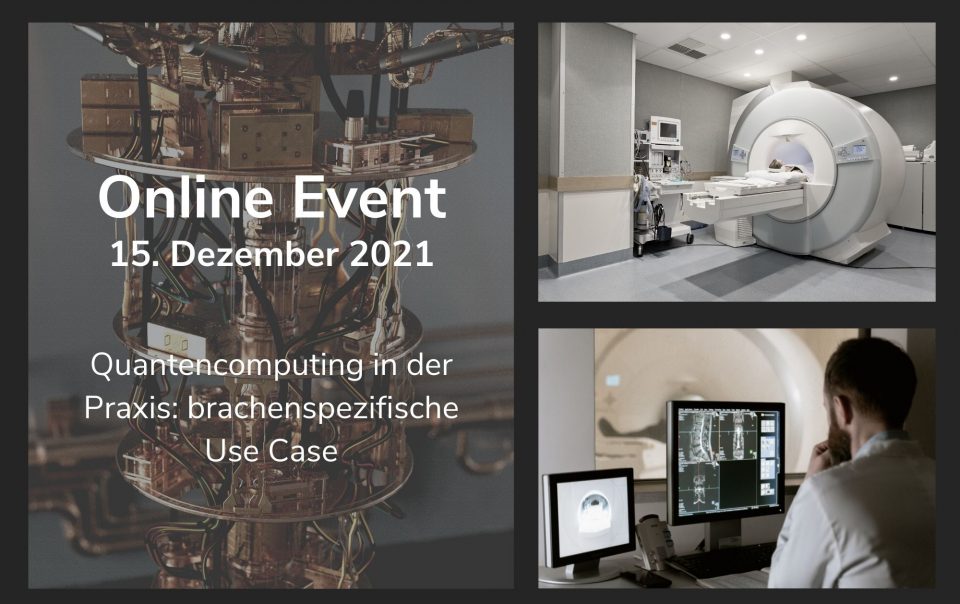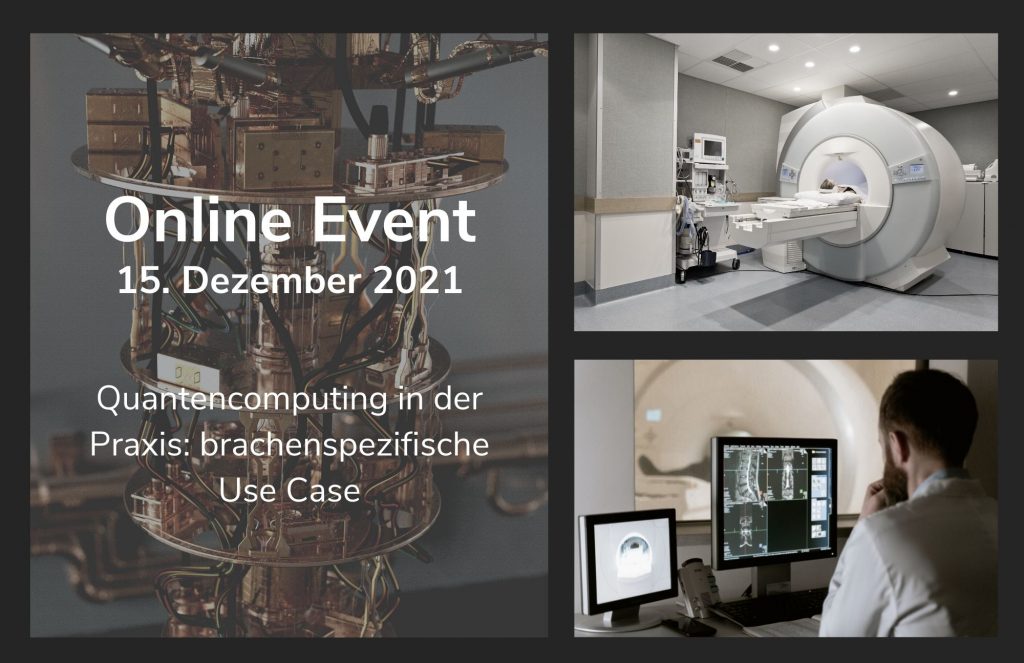Quantum computing in practice - QKI for assisted COVID-19 reporting
and decision support
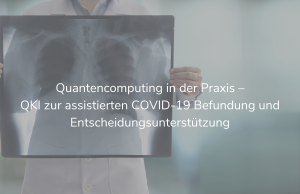 (December 15, 2021/Munich) At today’s network conference with the topic “Quantum computing in practice: industry-specific use cases”, Dr. Sigrid Auweter from Smart Reporting GmbH and Leo Sünkel from QAR-Lab were guests at Bayern Innovativ. The use of AI and quantum computing creates new possibilities in a wide variety of application areas – including the medical field. Smart Reporting GmbH has the goal of optimizing radiological diagnostic procedures and their reporting. For this purpose, Smart Reporting GmbH, together with the Fraunhofer Institute and the QAR-Lab of LMU Munich, are working on the use case “QKI-supported diagnosis of COVID-19 in radiology images” as part of the PlanQK project. The basic idea is to use quantum computing to analyze radiological diagnostic data and images of the lungs and surrounding organs in relation to the diagnosis of Covid-19.
(December 15, 2021/Munich) At today’s network conference with the topic “Quantum computing in practice: industry-specific use cases”, Dr. Sigrid Auweter from Smart Reporting GmbH and Leo Sünkel from QAR-Lab were guests at Bayern Innovativ. The use of AI and quantum computing creates new possibilities in a wide variety of application areas – including the medical field. Smart Reporting GmbH has the goal of optimizing radiological diagnostic procedures and their reporting. For this purpose, Smart Reporting GmbH, together with the Fraunhofer Institute and the QAR-Lab of LMU Munich, are working on the use case “QKI-supported diagnosis of COVID-19 in radiology images” as part of the PlanQK project. The basic idea is to use quantum computing to analyze radiological diagnostic data and images of the lungs and surrounding organs in relation to the diagnosis of Covid-19.
The goal of this use case is to automatically classify lung CT images into three categories: Healthy, COVID 19 pneumonia, and other diagnosis. In addition, the severity in COVID19 pneumonia is determined, i.e., how intensely the lungs have been attacked by COVID19. Based on this, the best treatment option for the patient should subsequently be derived. With the help of Quantum Machine Learning, the entire process will be optimized.
„First of all, the goal is to search and identify different solution approaches – especially related to quantum computers of the next years respectively the NISQ era.”
Quote Leo Sünkel/QAR-Lab
Several prototypes already exist that can be used to implement the project. One approach lies in hybrid classical “quantum transfer learning” with final localization of the image regions most likely to indicate pathology. This is performed on the quantum gate model. Another solution approach runs on the Quantum Boltzmann Machine which is calculated using quantum annealers.
One of the current challenges is that present quantum computers with the small number of qubits are not yet suitable to process whole CT scans on their own. For this reason, the hybrid approach is currently being forced, in which classical computers work together with quantum computers to do calculations and different architectures are being experimented with. The long-term goal is to maximize the quantum component and so achieve better results.
In the further course of the project, the various architectures will be evaluated and assessed. What are the weaknesses of the used quantum models and how good are the obtained results? On this basis, the models can be improved and extended. In addition, the newest medical findings from the COVID19 pandemic research are continuously integrated into the project.
If the use case “QKI-assisted diagnosis of COVID-19 in radiology images” succeeds in obtaining meaningful diagnoses, QKI methods can also be applied to other disease patterns in the long term and be a significant support to the healthcare sector.

